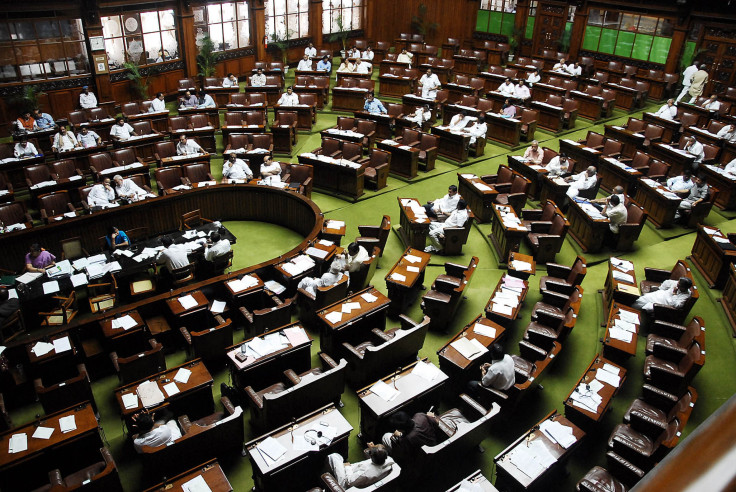Let Convicted MPs Remain In Office: Indian Government’s Ruling Outrages Media, Anti-Corruption Activists

An Indian regional politician named Y.S. Jagan Mohan Reddy has been released from prison after serving a year and four months on charges of corruption, specifically "criminal conspiracy, cheating and falsification of accounts.”
MP Reddy, who denies all the charges, was granted bail by a court in the southern Indian state of Andhra Pradesh on Monday. Like many, perhaps most Indian lawmakers, Reddy belongs to a family of well-connected politicians. His father, Y.S. Rajasekhara Reddy, served as the chief minister of Andhra Pradesh until his untimely death in a helicopter crash four years ago.
Until that crash, the Reddys belonged to the Congress Party, which has dominated Indian politics since independence. However, after Congress rejected the son’s bid to succeed his father as chief minister of Andhra Pradesh, he quit the party and formed his own – calling it the “YSR Congress” party. Reddy’s legal troubled exploded a few years afterwards.
But now Reddy – who under terms of his bail, cannot leave the city of Hyderabad – is wildly popular in the state, as attested by the sweeping victory of his YSR Congress party in state elections held last year.
It is not yet clear if, or when, Reddy, will resume his political career.
Ironically, Reddy’s freedom came just as the Indian government made a move to overturn a Supreme Court ruling from July that essentially barred politicians from holding office if they have been convicted of any crimes – or removed from their seats if they are currently serving.
Specifically, the Congress Party-led United Progressive Alliance government approved an ordinance to "negate" the court's ruling and "soften the blow on convicted MPs and legislators.”
According to reports, at least one-fourth of all of Indian federal and state MPs in office currently face criminal charges, including very serious offenses like sexual assault and even kidnapping. Of the 543 members of the lower house of parliament, more than 150 are facing charges for criminal offenses.
The Supreme Court ruling was viewed as an important part of electoral reform and an attempt to reduce massive corruption. Now these hopes may be dashed to pieces because the law will protect convicted (or accused) MPs and help them keep their jobs.
Indian media and activists have blasted the government’s move to scale back anti-corruption efforts.
"This has dealt a destructive blow to democracy," said Jagdeep Chhokar, co-founder of the Association for Democratic Reforms. "The Supreme Court judgment was a major positive step, and undoing it is a disservice to the country."
The Times of India said the "only people who gain from this move are those not merely accused but convicted of serious offenses. Everybody else, and our democracy, will be a loser.”
"This is a regressive move that militates against the judiciary's salutary intervention towards decriminalization of politics at a time when the political class is dragging its feet on long-delayed electoral reforms," said an opinion in The New Indian Express.
The Hindustan Times reported that the ordinance, which the president is expected to sign in a few days, will save the careers of many politicians, including Congress MP Rashid Masood, who has already been convicted of corruption in a city court.
The opposition Bharatiya Janata Party has also condemned the government’s measure.
"The government's hurry in getting an ordinance has got to be explained. ... The BJP will oppose such a step," said spokesperson Nirmala Sitharaman.
The ordinance remains subject to ratification by both houses of Parliament within six weeks of the beginning of the next session.
© Copyright IBTimes 2024. All rights reserved.





















